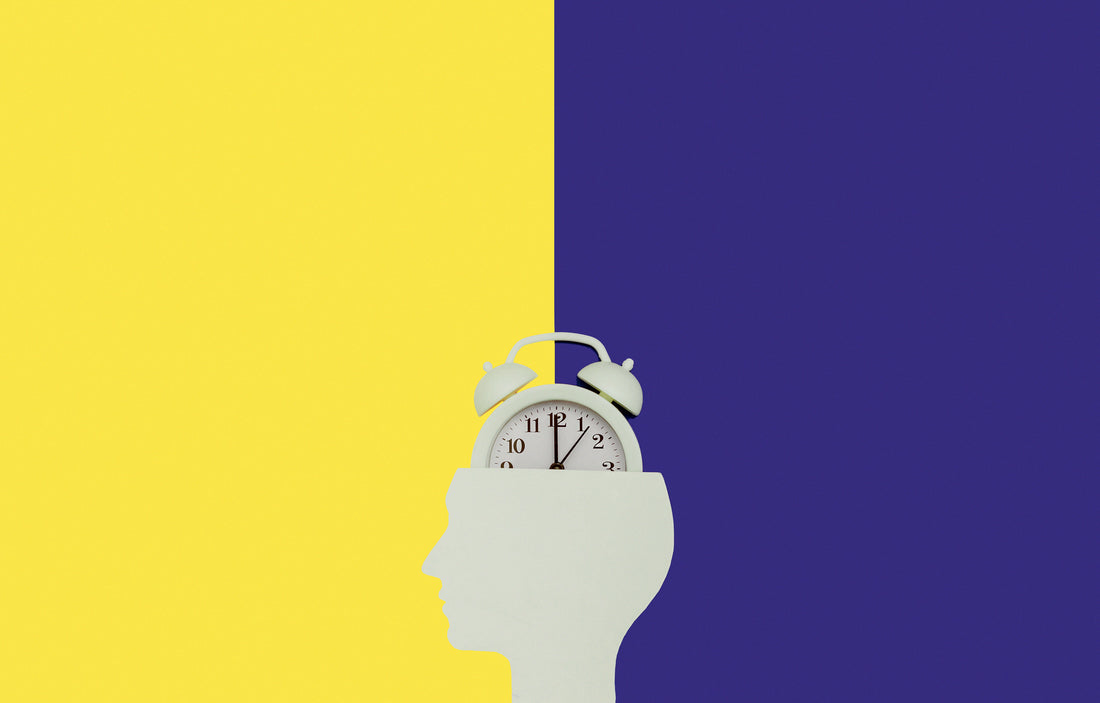Circadian Rhythm 101: Everything You Need to Know
Have you ever wondered why you feel energetic at certain times of the day and sluggish at others? Or why adjusting to a new time zone after traveling is so challenging? The answer lies within your body's natural clock, known as the circadian rhythm. Understanding this internal rhythm can unlock the secrets to better sleep, improved health, and a more balanced life.
What is the Circadian Rhythm?
Think of your circadian rhythm as a 24-hour internal clock running in the background of your brain, cycling between sleepiness and alertness at regular intervals. Also known as the sleep/wake cycle, this natural process is driven by biological clocks found in nearly every cell in your body, orchestrated by the master clock located in the brain's hypothalamus.
The Science Behind It
At the heart of the circadian rhythm is the suprachiasmatic nucleus (SCN), a group of about 20,000 nerve cells in the hypothalamus. The SCN receives direct input from the eyes and responds to light and darkness. When exposed to light, the SCN sends signals to raise body temperature and produce hormones like cortisol, promoting alertness. Conversely, in darkness, it signals the production of melatonin, a hormone that induces sleepiness.
These rhythms are not unique to humans; they are found in most living organisms, including animals, plants, and even some bacteria. The term "circadian" comes from the Latin words "circa" (around) and "diem" (day), meaning "approximately a day." This cycle is ingrained in our biology and plays a crucial role in our overall health and well-being.
Why It Is Important
The circadian rhythm plays a vital role in regulating various bodily functions, including:
- Sleep: Ensures you feel sleepy at night and awake during the day.
- Hormone Production: Regulates hormones like melatonin and cortisol.
- Body Temperature: Influences fluctuations in body temperature.
- Digestion: Affects when and how efficiently your body processes food.
How It Affects Your Daily Life
Your circadian rhythm impacts virtually every facet of your daily life, especially the following:
- Sleep Patterns
- Morning Wakefulness: Most people naturally wake up feeling refreshed after a good night's sleep. This is when your body temperature starts to rise, and cortisol levels increase, preparing you for the day ahead.
- Afternoon Slump: It's common to experience a dip in energy between 1 PM and 3 PM. This mid-afternoon lull is a natural part of the circadian cycle and can be mitigated by a short nap or a brief walk outside.
- Evening Wind-Down: As evening approaches, your body temperature drops, and melatonin levels rise, signaling that it's time to wind down and prepare for sleep.
- Mental Alertness
- Peak Performance Times: Your circadian rhythm influences cognitive functions, with most people experiencing peak mental alertness mid-morning and mid-afternoon. Scheduling important tasks during these times can enhance productivity.
- Creativity Boost: For some, creative thinking and problem-solving skills peak in the evening. Understanding your personal rhythm can help you harness these creative spurts effectively.
- Eating Habits
- Meal Timing: Your body's ability to process food efficiently is tied to your circadian rhythm. Eating meals at regular times can aid digestion and metabolism.
- Midnight Snacking: Disruptions in circadian rhythms can lead to late-night cravings and irregular eating patterns, which may contribute to weight gain and metabolic disorders.
- Physical Performance
- Exercise Efficiency: Strength and endurance often peak in the late afternoon to early evening. Aligning your workout routine with this window can yield better results.
- Recovery Rates: Muscle repair and recovery are influenced by circadian rhythms, with optimal recovery occurring during sleep.
-
Mood and Emotional Health
- Morning Mood: Consistent sleep patterns and exposure to natural light can improve mood and reduce the risk of depression and anxiety.
- Stress Response: Cortisol, known as the stress hormone, follows a circadian rhythm, peaking in the morning and declining throughout the day. Managing stress effectively involves understanding and respecting these natural fluctuations.

What Influences Your Circadian Rhythm?
Factors like light exposure, lifestyle, age, genetics, and travel are the most common ones. Natural and artificial light profoundly impact your internal clock; bright light in the morning helps reset your circadian rhythm, while blue light from screens in the evening can delay sleep onset. Your work schedules, social activities, and daily routines can either support or disrupt your natural rhythm, with shift work often leading to circadian misalignment.
Age also plays a role, as teenagers typically experience a delayed sleep phase, while older adults may wake up earlier. Genetics influence whether you are naturally an early riser (lark) or a night owl. Lastly, crossing time zones can disrupt your circadian rhythm, causing jet lag as your body needs time to adjust to the new light-dark cycle, affecting sleep and alertness
What Happens When It’s Unbalanced?
A well-aligned circadian rhythm contributes to optimal health and well-being, while disruptions can lead to sleep disorders, metabolic issues, and mood disturbances. The most common are:
- Jet Lag: Occurs when traveling across time zones, causing temporary misalignment. Symptoms include fatigue, insomnia, and difficulty concentrating.
- Shift Work Disorder: Common in people who work non-traditional hours, leading to excessive sleepiness or insomnia.
- Delayed Sleep Phase Disorder (DSPD): A tendency to fall asleep and wake up later than usual, often seen in teenagers and young adults.
- Advanced Sleep Phase Disorder (ASPD): The opposite of DSPD, where individuals fall asleep and wake up earlier than desired, often affecting older adults.
- Non-24-Hour Sleep-Wake Disorder: A condition where the circadian rhythm is not aligned with the 24-hour day, commonly seen in blind individuals.
How to Maintain a Healthy Circadian Rhythm
- Get Plenty of Natural Light: Spend time outdoors during the day to boost alertness and mood. Morning sunlight is especially beneficial for resetting your internal clock.
- Stick to a Routine: Try to go to bed and wake up at the same time every day, even on weekends. Consistency helps reinforce your natural rhythm.
- Limit Light Exposure at Night: Avoid screens and bright lights before bedtime to promote melatonin production. Consider using dim, warm lighting in the evening.
- Create a Relaxing Evening Routine: Engage in calming activities like reading, meditating, or taking a warm beverage before bed. Establishing a pre-sleep routine signals your body that it's time to wind down.
- Stay Active: Regular physical activity can help regulate your circadian rhythm. Aim to exercise at the same time each day, preferably in the late afternoon or early evening.
- Mind Your Diet: Eat meals at regular times and avoid heavy, late-night snacks. A balanced diet supports overall health and circadian balance.
- Avoid Stimulants: Limit caffeine and nicotine intake, especially in the afternoon and evening, as they can interfere with sleep.
Understanding and respecting your circadian rhythm is key to optimizing your health and well-being. By aligning your lifestyle with your internal clock, you can enhance your sleep quality, boost your energy levels, and improve your overall mood. So, listen to your body and embrace its natural flow to reap the benefits of a more balanced life.




